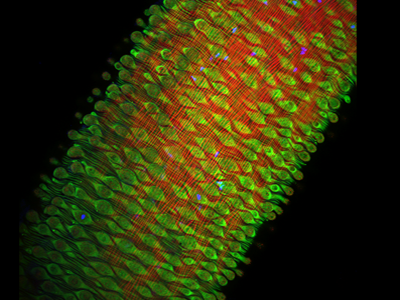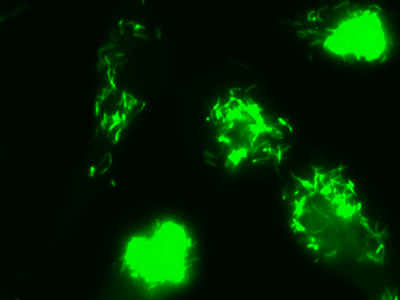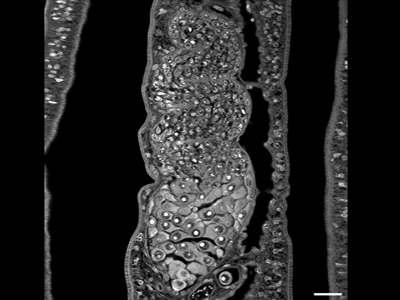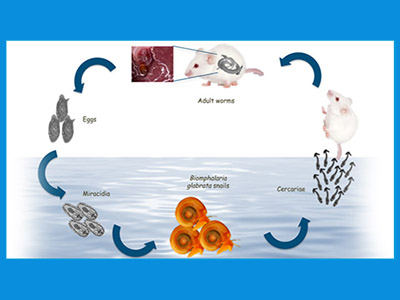Group Leader: Paola ItalianiTopics: Immunity and InfectionKeywords: innate immunity, Inflammation, nanosafety, monocytes/macrophages. Dr. Paola Italiani, head of the laboratory of Innate Immunity, Inflammation and Nanosafety at IBBC, is an experimental immunologist with twenty years’ experience in innate immunity and inflammation and pharmacology, in project management in academy and in collaboration with industry, and in higher…
Read MoreGroup Lader: Piergiuseppe De BerardinisTopics: Immunity and Infection Two major projects are carried out in the lab: 1) Development of new antigen delivery systems. Using the phage display platform as a vehicle able to induce antigen-specific cytotoxic T cells we perform analysis of the in vitro and in vivo immune response to delivered antigens, in wild type and…
Read MoreGroup Leader: Maria Rosaria CosciaTopic: Immunity and Infection Dr Coscia’s main research line focuses in the field of comparative immunology, with particular attention to the immune response of fish living in an apparently hostile marine environment such as the Antarctic marine ecosystem. To study the adaptationto low temperature, her model system is provided by fishes…
Read MoreGroup Lader: Antonino ColanziKey words: Golgi complex, mitosis, cell cycleTopics: Cell and molecular biology, Molecular oncology and pathology, Pharmacology The general aim of our research group is to define the mechanisms and regulation behind the mitotic inheritance of intracellular organelles, with particular attention to those involving the partitioning of the Golgi complex. This addresses a…
Read MoreGroup Lader: Anna Chiara De LucaTopics: Advanced Morphology, Molecular oncology and pathology, BiochemistryKey words: Imaging; Cancer; biosensors Our group is interested in the development of optical technologies based on Raman spectroscopy in order to provide fast and reliable procedures for the biochemical label-free characterization of single cells and molecules.On a cellular scale, our group…
Read Morepoverty related and neglected infectious diseases
The Neglected Tropical Diseases (NTDs) (https://www.who.int/neglected_diseases/diseases/en/), a group of parasitic, bacterial, and viral infectious diseases, along with AIDS, tuberculosis, and malaria are collectively referred to as ‘infectious diseases of poverty’. NTDs affect the most poor and vulnerable populations in the world and more than one billion people are treated for control and elimination of NTDs each year. Importantly, these infections are co-endemic and an individual may be infected with more than one pathogen.
In IBBC-CNR we study in particular schistosomiasis, one of the 17 NTDs prioritized by WHO. Schistosomiasis contributes to the global morbidity with 4,026,000 DALYs (disability-adjusted life years), more than 780 million people are at risk and more than 200 million infections occur annually. Among human parasitic diseases, schistosomiasis ranks second behind malaria in socio-economic terms, public health importance and prevalence in the developing world.
Schistosomiasis is caused by some species of blood trematodes (flukes) in the genus Schistosoma. Unlike other trematodes, which are hermaphroditic, Schistosoma spp. are dioecous (individuals of separate sexes). Schistosomes reside in the mesenteric or bladder and survive for many years producing hundreds of fertilized eggs per day. Chronic infections can persist for decades and severe morbidity results from host immune responses to eggs in tissues.




